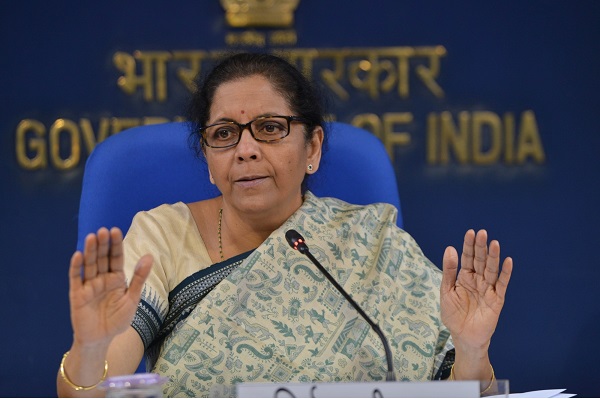New Delhi, Finance Minister Nirmala Sitharaman on Friday claimed that the origin of the Yes Bank crisis lies in the pre-2014 era of Congress rule.
Laying down the restructuring scheme for Yes Bank, she countered criticism by the opposition, saying that the crisis originated under the watch of Congress-led UPA government.
“The opposition is very keen to point fingers on this. Not that I want to put a blame on them, but I have reason to do so,” she said.
The Finance Minister said that India’s banking sector faced several challenges owing to the way the UPA government had handled matters during 2004 and 2014.
“It is important for the media to know… the exposure of Yes Bank to some very stressed corporates has been there since before 2014,” she said.
She noted that the opposition is saying that Yes Bank is now “No Bank”.
“The so-called self-appointed competent doctors were in charge when United Western Bank was almost on the verge of collapse in 2006 and was forcefully merged with IDBI. Today if I have problems restoring good health of IDBI, I am giving you examples of how self-appointed competent doctors had handled the United Western Bank merger with IDBI,” the minister said.
She observed that IDBI Bank went down because of the merger.
However, data shows that loan book of Yes Bank grew significantly after 2014, when the Narendra Modi-led NDA government came to power.
The loan book of the bank in FY 2015 rose to Rs 75,000 crore from Rs 55,000 crore in FY 2014. In FY 2016, it was recorded at Rs 98,000 crore. It went up to Rs 2.41 lakh crore in FY 2019.
Speaking to reporters here, Sitharaman said that the government has asked the Reserve Bank of India to look into wrongs at the Yes Bank and assign individual responsibilities.
The bank was being under watch since 2017 and developments relating to it were being monitored on a day-to-day basis, she said.
“Since 2017, the central bank noticed governance issues and weak regulatory compliance at Yes Bank, besides wrong asset classification and risky credit decisions.”
The bank took many risky credit decisions, and the RBI had advised change in management, the Minister said adding such decisions were taken in the interest of the bank’s health. A new CEO was appointed in September 2018 and cleaning up of bank started and the investigative agencies too found irregularities, she said.
On Thursday, the apex bank placed the private lender under moratorium and capped withdrawal per depositor at Rs 50,000 until April 3.
It also superseded Yes Bank’s board of directors and appointed former State Bank of India CFO Prashant Kumar as its administrator. As per the RBI, India’s biggest bank SBI has expressed its willingness to participate in its reconstruction scheme.








